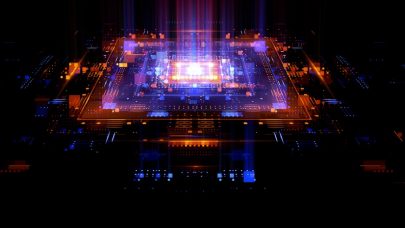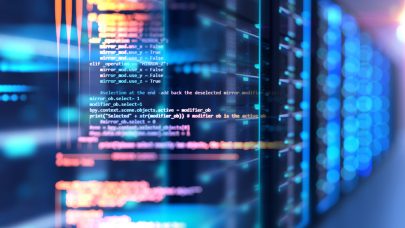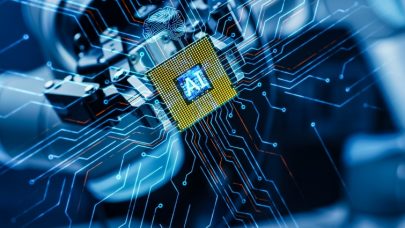Today’s HPC landscape is one of rapid growth, change, and evolution. The overall market has skyrocketed to $34.8 billion with expected developments fueling continued expansion. From pandemic aftereffects and growing cross-disciplinary work to increasing technical advancements, we have entered into a new paradigm for HPC. In fact, the IEEE Computer Society (CS) recently predicted that, “New software for the development and deployment of next-generation computing components, systems, and platforms [will] enable a transition to a compute continuum with strong capacities at the edge and far edge in an energy efficient and trustworthy manner,” among other technology advancements.
But what does this mean for HPC in 2023? In short, these shifts have given way to five key trends that will spark increased research, development, and commercialization of critical technologies:
1. Exascale computing. We are firmly rooted in the exascale period. In fact, Hyperion Research predicts the value of accepted exascale systems around the globe will reach $10 billion by 2027.
“We’re on the cusp of now benefiting from the impact of science using that amount of processing in multiple different places,” noted my colleague Bill Kramer, Blue Waters Director at the University of Illinois, National Center for Supercomputing Applications (NCSA) and SC22 conference vice chair. “We will be seeing a significant improvement coming from greatly increased fidelity (e.g. increased grid resolution, increased numbers of particles, more complex agent behaviors), and/or expanded time steps, because there is more computing power being brought to bear on these problems and much more complex algorithms and data flows.”
2. HPC with AI and ML. For some time now, the community has been pushing boundaries by incorporating artificial intelligence (AI) and machine learning (ML) into HPC models. We are seeing these integrations as more commonplace in certain environments, and that has given way to new opportunities for technical exploration.
“We are seeing technology advances in hardware. You have tech companies building more capable GPUs as well as companies that have built special-purpose AI computing hardware, and we’re finding new ways to use it,” shared Jamie Van Randwyk, manager and computer scientist at Lawrence Livermore National Laboratory and SC23 finance chair. “As technology advances, people develop new software and have embraced analytics, and now the hardware technology and the software are more effectively integrated and can run in a reasonable amount of time. It brings a lot of potential.”
3. Quantum computing. This one has been a long time coming, but we’re starting to realize true developments as quantum computing makes its way from theoretical concept to HPC application. We’re very much at the beginning of the quantum era.
Looking forward over the next five years, I’m expecting a lot of work around how we take quantum devices and incorporate them into more traditional computing environments; write programs that have a traditional piece, but then call out to the quantum resources as a sort of accelerator; and then make use of the information in the traditional science workflows.
4. Portable performance and productivity. There’s an increased emphasis on these areas for efficiency and scalability. If I develop science software for one machine, I want to be able to take that same implementation to another machine and get good performance and accuracy out of it without having to do a whole lot of work in porting it over.
As we consider adding more non-traditional computing devices like neuromorphic processors and quantum components to systems, performance portability is going to be a big aspect. You want the application developer, who may not be a programmer by trade but rather a physicist or chemist, to focus on their science and still be able to run their software on whatever systems are available to them with good performance and scientifically equivalent results.
5. Cross-disciplinary collaboration. With portable performance and productivity as a focus, it makes sense that cross-disciplinary collaboration continues to climb. The Covid pandemic simply accelerated a trend that had been percolating for quite some time. As Gina Tourassi, director of the National Center for Computational Sciences at the Oak Ridge National Laboratory, summed up at SC22, taking this focused, cooperative approach has yielded results far beyond their initial intended outcomes. She pointed to the work between the Department of Energy and the Leadership Computing Facilities and its strategic partnership with the National Cancer Institute:
“The unintended consequence of these partnerships is that the models we have been developing and deploying, the AI models that are completely tailored to cancer clinical data, found immediate translation during the pandemic in terms of leveraging these AI models with completely different data sets, in terms of accelerating the search process of finding promising therapeutic targets,” Tourassi remarked. “So, these are some of the exciting things of partnerships, and collaborations, and cross-pollination of ideas; we often start with something in mind, and it can be so much more.”
2023 promises to bring further advances in HPC, with research democratizing exascale technologies; enabling quantum explorations; introducing AI and ML algorithms for new forms of analytics; investigating portable performance and productivity; and emphasizing cross-discipline collaborations. And industry partners will continue supporting HPC by developing solutions that enable the evolution of ideas and their application to new environments.
 Yet these developments only scratch the surface of HPC’s true potential in 2023. I know I speak for all of us when I say it’s an exciting time to be in computer science and engineering. As the year goes on, I have no doubt we will see many milestones achieved, and I am looking forward to our community driving those shifts and being awed by the opportunities that we will face in 2023.
Yet these developments only scratch the surface of HPC’s true potential in 2023. I know I speak for all of us when I say it’s an exciting time to be in computer science and engineering. As the year goes on, I have no doubt we will see many milestones achieved, and I am looking forward to our community driving those shifts and being awed by the opportunities that we will face in 2023.
Philip C. Roth is deputy chair of SC23 and group leader in the National Center for Computational Sciences at Oak Ridge National Laboratory. For more information on HPC in 2023, contact IEEE CS or visit computer.org.

































































